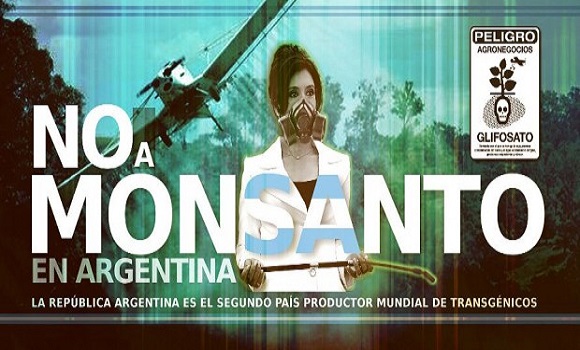Argentina: Government Shows Signs of Siding with Farmers in Dispute with Monsanto
The world’s third largest soy exporter may have just dealt another blow to the multi-national agricultural company Monsanto.

A simple decree by the Argentine government regarding food inspection may signal an even bigger step in the right direction for the South American country in the future.
The issue surrounds the fact that Monsanto has been demanding that exporters inspect cargo to determine whether or not farmers had paid the requisite royalties to produce the company’s genetically modified soybeans. Monsanto is claiming that Argentine farmers have benefited immensely from the Intacta technology and is demanding that everyone pay to use it.
For about a year, Monsanto has been pressuring shipping companies and demanding that the companies notify it when crops produced with Intacta technology are scheduled to be exported without corresponding documentation proving that royalties had been paid to Monsanto.
Image credit: truthalerts.com
The Intacta soybeans in question are genetically engineered to have a gene that protects them against worms that target the plant. Monsanto is demanding royalties for grains produced even by second generation seeds. Farmers, however, argue that Argentinian law does not require that they pay for second generation production and are asking the government to stop private companies from acting as food inspectors.
The Argentine Rural Society (SRA) an organization that represents medium and large scale producers said the inspections were unwarranted. “These methods were not only not authorized, but furthermore, we saw them as an abusive power for a company to be acting like the police,” SRA president Luis Etchevehere said.
In an official bulletin that was issued on Thursday, April 14th, Argentina’s Agricultural Ministry stated that any inspection needs prior government authorization.
While it did not mention Monsanto or the dispute between the farmers and the company, it appears that the Argentinian government is asserting itself in the face of a company that is essentially strong-arming exporters into acting as the company’s own private inspection service.
Brandon Turbeville – article archive here – is an author out of Florence, South Carolina. He is the author of six books, Codex Alimentarius — The End of Health Freedom, 7 Real Conspiracies,Five Sense SolutionsandDispatches From a Dissident, volume 1 and volume 2, The Road to Damascus: The Anglo-American Assault on Syria, and The Difference it Makes: 36 Reasons Why Hillary Clinton Should Never Be President. Turbeville has published over 600 articles dealing on a wide variety of subjects including health, economics, government corruption, and civil liberties. Brandon Turbeville’s podcast Truth on The Tracks can be found every Monday night 9 pm EST at UCYTV. He is available for radio and TV interviews. Please contact activistpost (at) gmail.com.


